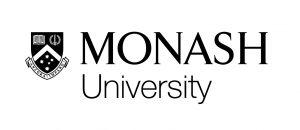
Posted: 24 February 2025
A novel vaccine that boosts immunity against tuberculosis (TB) has been shown to be effective in pioneering pre-clinical trials.
A study into the LNP-mRNA vaccine’s effectiveness, published in eBioMedicine, was led by researchers from the Sydney Infectious Diseases Institute at University of Sydney, the Centenary Institute and the Monash Institute of Pharmaceutical Sciences (MIPS) at Monash University.
The study found the vaccine was effective in triggering an immune defence response which helped to destroy cells infected with TB. When used as a booster in BCG-vaccinated mice, the vaccine significantly improved long-term protection against TB compared to mice that had only received a BCG.
The vaccine used mRNA technology, which is where genetic instructions, as opposed to a weakened or deadened version of a virus, are used to trigger an immune response in the body.
Senior author Professor Jamie Triccas, Deputy Director of the Sydney Infectious Diseases Institute, said: “Our findings demonstrate that an mRNA vaccine can induce potent, pathogen-specific immune responses that target TB, a disease that has long evaded effective vaccine development. This represents a major advance in TB vaccine research and provides a strong rationale for further clinical development.”
TB is the largest cause of infectious mortality worldwide, killing 1.5 million people a year, with a particular prevalence in countries such as Indonesia, Vietnam, Pakistan and South Africa.
Currently the century-old Bacillus Calmette-Guerin (BCG) vaccine is the only approved vaccine for TB and is used widely despite its effectiveness in adults being inconsistent.
The researchers hope that the LNP-mRNA vaccine will ultimately be more effective and consistent than the BCG. This is because, unlike protein-based or live-attenuated vaccines, mRNA vaccines allow for rapid adaptation, making them an attractive option for global TB control efforts.
Professor Colin Pouton from MIPS, a key contributor to the study, explained: “The success of mRNA vaccines in the COVID-19 pandemic underscored their ability to generate strong immune responses. Our study provides evidence that this platform can be harnessed for TB, potentially improving protection and durability of immunity in a way that traditional vaccines cannot.”
Dr Harry Al-Wassiti from MIPS, also a key contributor to the study, said these findings further validate the immense potential of mRNA to transform how we treat a range of diseases.
“Despite concerted global efforts, there is still an urgent need for a new, more effective vaccine to prevent TB. The flexibility of the mRNA platform, combined with ease of manufacturing has significantly transformed our ability to make this happen. We’re very excited about this study, which is a testament to the collaborative spirit of the entire research team,” Dr Al-Wassiti said.
Following the study’s promising results, the research team is now looking to advance the vaccine to clinical trials.
“Our next goal is to refine the formulation and assess its efficacy in larger models before moving to human studies,” said Professor Triccas. “Given the global burden of TB and the limitations of current vaccines, we believe this platform could provide a new pathway toward eradicating this disease.”
Professor Pouton and Dr Al-Wassiti developed Australia’s first example of an mRNA vaccine which was manufactured for clinical trials in Melbourne. The Monash COVID-19 mRNA vaccine has already completed a Phase 1 clinical trial, in partnership with the Doherty Institute, as a fourth-dose booster against COVID-19.



